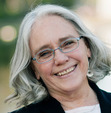Wicked Wednesday-Prose and Cons
Jessie: Enjoying watching birds recently returned from the south.

This month as we discuss prose and cons the question of voice in prose occurred to me. Do you think that voice can be taught or is it innate, like a sort of writerly DNA? Can it be strengthened and developed or does tinkering with it alter it in ways that are not desirable?
Julie: Such an interesting question! I’m part of a collaborative effort for Sisters in Crime–we’re creating a course called Better Your Worlds, Better Your Writing. (There’s a workshop this Saturday on the topic, more information here.) My section was on narrative voice, and I also wrote a thesis on Agatha Christie’s use of POV. Jessie, you’ve experimented with voice from the beginning. I do think that we may have a strength in one voice, first person for me, but part of being a writer is pushing past comfort zones. The current novel I’m shopping is in multiple POVs. I couldn’t have done that ten years ago. I’m also considering a new novel in first person, but in a different genre. One thing about voice that can’t be taught is humor. I may have spurts of funny, but I am not a funny writer. As you can tell, I love this topic!
Barb: The question of voice is a difficult one, mainly because no one can tell you exactly what it is. It’s not prose style, though that’s part of it, or the point-of-view character’s thinking and communication styles, though that may help to transmit it. For me, voice is the storyteller, always present in the background. It is seductive, saying, “Come with me.” It is confident, saying, “I will tell you a great story, a story I believe in.” It is authentic, saying “This is a story that is important to me, from my heart.” It is trustworthy, even in the case of an unreliable narrator. It says, “This story will become important to you, too.” The best way to develop strong voice is to read, read, read, and let it sink into your DNA, like those environmental factors that affect our genes. I don’t know if it can be taught, but it can be learned. While in some manuscripts the voice blasts onto the page from the first sentence, a voice that starts out wavering and thin can become stronger, draft after draft, as the writer becomes more confident in the story and its value to the reader. As the writer is seduced by the story and falls in love with it, the voice can grow truer and more confident, too.
Sherry: Very interesting, Julie and Barb. I think beyond reading it’s write, write, write. I’m not sure voice can be taught, but something Barb said a long time ago helped me with voice. While she was talking about writing a synopsis, it’s also true for finding voice. The first part of the advice is: Pretend you’re in a bar with an old friend you haven’t seen for a while. You can read the rest of it here.
Edith: Wow, my friends. Even after all the words (of fiction) I’ve written, all the stories I’ve told, I wasn’t quite sure what voice was. I don’t think about it and didn’t know how I could contribute to this post. I only know that I let my protagonist guide my writing. The voice in my Country Store Mysteries, for example, is far different than when 1880s midwife Rose Carroll is telling the story. And some of my short stories emerge in a darker voice. I’ve written two novels in more than one point of view. One didn’t sell (I think I hadn’t quite figured it out yet) and the other is out on submission.
Liz: I love this conversation too. While I also could never pinpoint a textbook definition, for me it was more of a feeling as I was writing. Was I being authentic? Did the voice sound more real in first or third person? How can I make sure that my character is doing the talking and not me? When none of those questions were coming up as I was writing, I felt more confident that the voice was right. I also love thinking about how different POVs help me tell the story. I’m also experimenting with a novel written in multiple POVs and it’s been a fascinating process.
Jessie: I love reading all of your thoughts on voice! For me, I think it is less learned perhaps than unlearned. When writers are starting out they tend to look outside of themselves for guidance and that can lead to unconsciously imitating their mentors and role models. A writer’s unique lens on the world and her particular way of expressing it are what I think voice is made of and developing a confidence that those are valuable enough to share authentically can take some time.
Readers, what sorts of storytelling voices are you attracted to?



